Block A of weight 100N rests on a frictionless inclined plane of slope angle 30∘(Fig. 5.7). A flexible cord attached to A passes over a frictonless pulled and is connected to block B of weight W. Find the weight W for which the system in equilibrium.
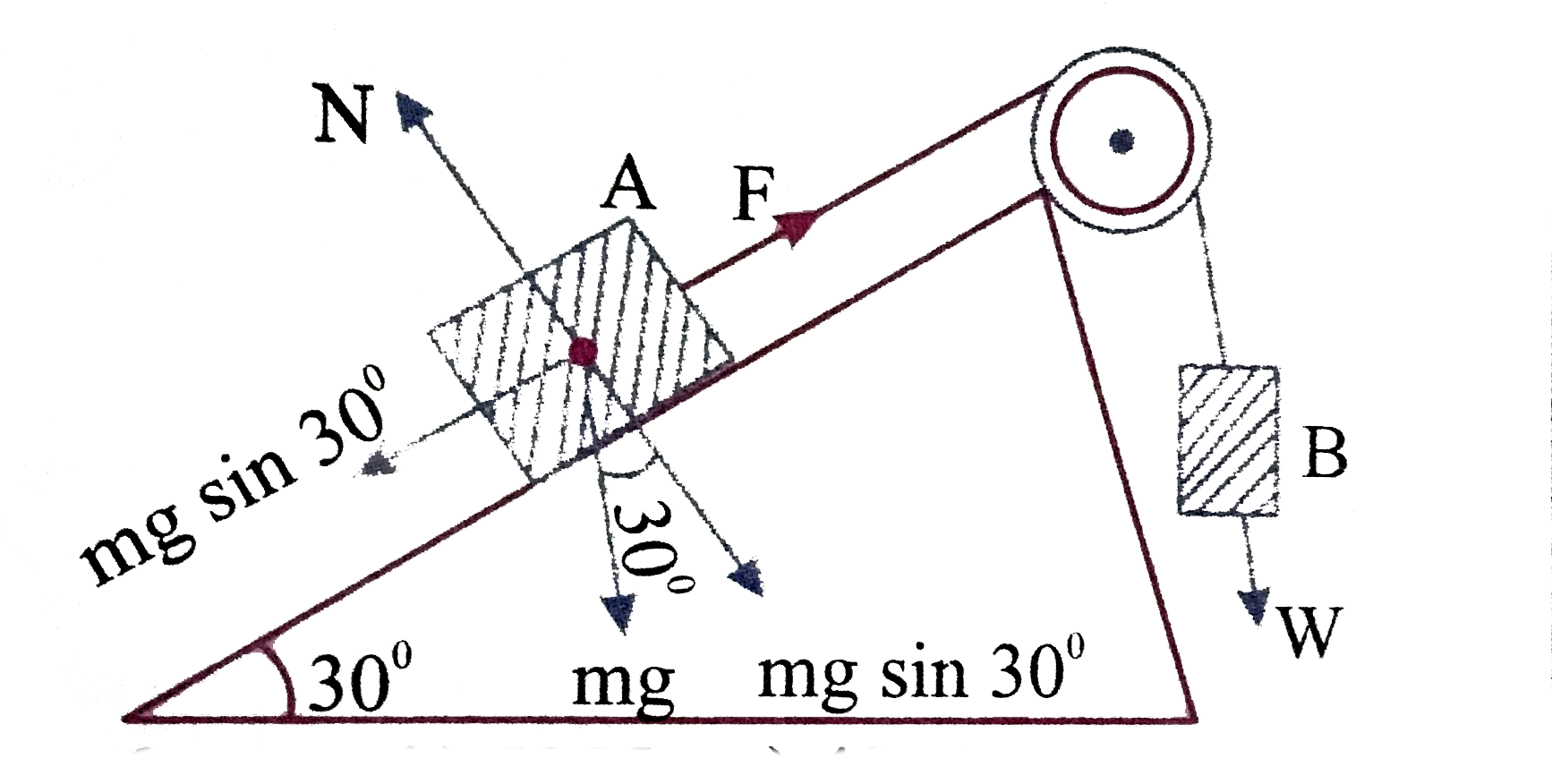
In equilibrium , the force mg sin θ acting on block A parallel to the plane should be balanced by the tension in the string , i.e.,
mg sin θ=T=F [∵T=Fgiven]…..(i)
and for block B w=T=F ....(ii)
where , w is the weight of block B .
From Eqs. (i) and (ii) , we get
∴ w=mgsinθ
= 100×sin30∘ (∵ mg=100N)
= 100×12N=50N
Topper's Solved these Questions
- BOOK - NCERT EXEMPLAR ENGLISHCHAPTER - LAWS OF MOTIONEXERCISE - Long answer Type Questions9videos
LAWS OF MOTION
- BOOK - NCERT EXEMPLAR ENGLISHCHAPTER - LAWS OF MOTIONEXERCISE - Very short answer type Questions12videos
LAWS OF MOTION
- BOOK - NCERT EXEMPLAR ENGLISHCHAPTER - KINETIC THEORYEXERCISE - Multiple Choice Questions (MCQs)31videos
KINETIC THEORY
- BOOK - NCERT EXEMPLAR ENGLISHCHAPTER - MECHANICAL PROPERTIES OF FLUIDSEXERCISE - Long Answer Type Questions3videos
MECHANICAL PROPERTIES OF FLUIDS
Similar Questions
A mass m1 lies on fixed, smooth cylinder . An ideal cord attached to m1 passes over the cylinder and is connected to mass m2 as shown in the figure.
(a) Find the value of θ( shown in diagram ) for which the system is in equilibrium.
(b) Given m1=5kg,m2=4kg . The system is released from rest when θ=30∘ . Find the magnitude of acceleration of mass m1 just after the system is released.
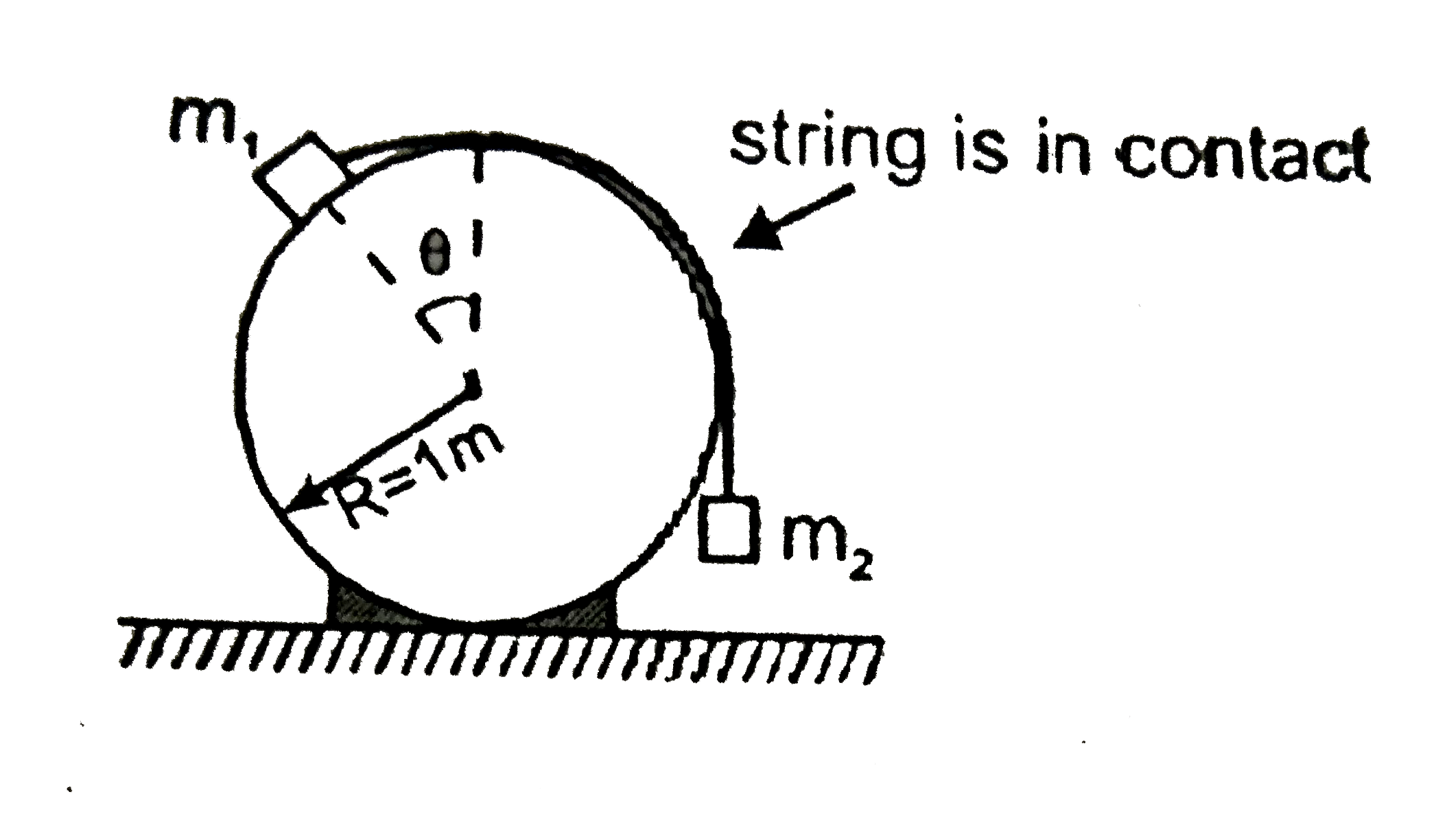 View Solution
View SolutionA block A of mass 5√3m rests on a rough horizontal plane relative to which its coefficient of friction is μA light string attached to this block passes over a light frictionless pulley and another block B of mass m hangs from it. It is observed that the block A just slips when the string makes an angle of 60∘ with the horizontal .
Find the coefficient of static friction between the block A and the plane. If the same force acting through the sting is applied to the block A in the horizontal direction, find the acceleration of the block A.
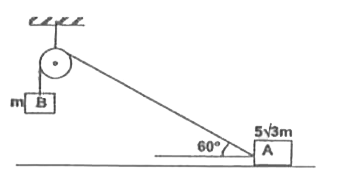 View Solution
View Solutiona. Block A , as shown in figure weight 60.0N The coefficient of static friction between the block and the surface on which it rest is 0.25 .The waight w is 12N The system is in equlibrium .Find the friction for excerted on block A
b. Find the maximum weight w for which the system will remain in equlibrium View Solution
View SolutionA weight W is tied to two strings passing over tha frictionless pulleys A and B as shown in the figure. If weights P and Q move downwards with speed v, the weight W at any instant rises with the speed :
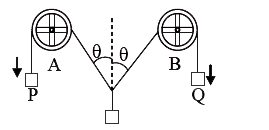 View Solution
View SolutionTwo identical blocks A and B each of weight 20N are placed on a frictionless horizontal plane. The portion of the string connected to B is vertical and that connected to A makes an angle of 53∘ with the plane . The minimum horizontal force F required to lift the blocks B is
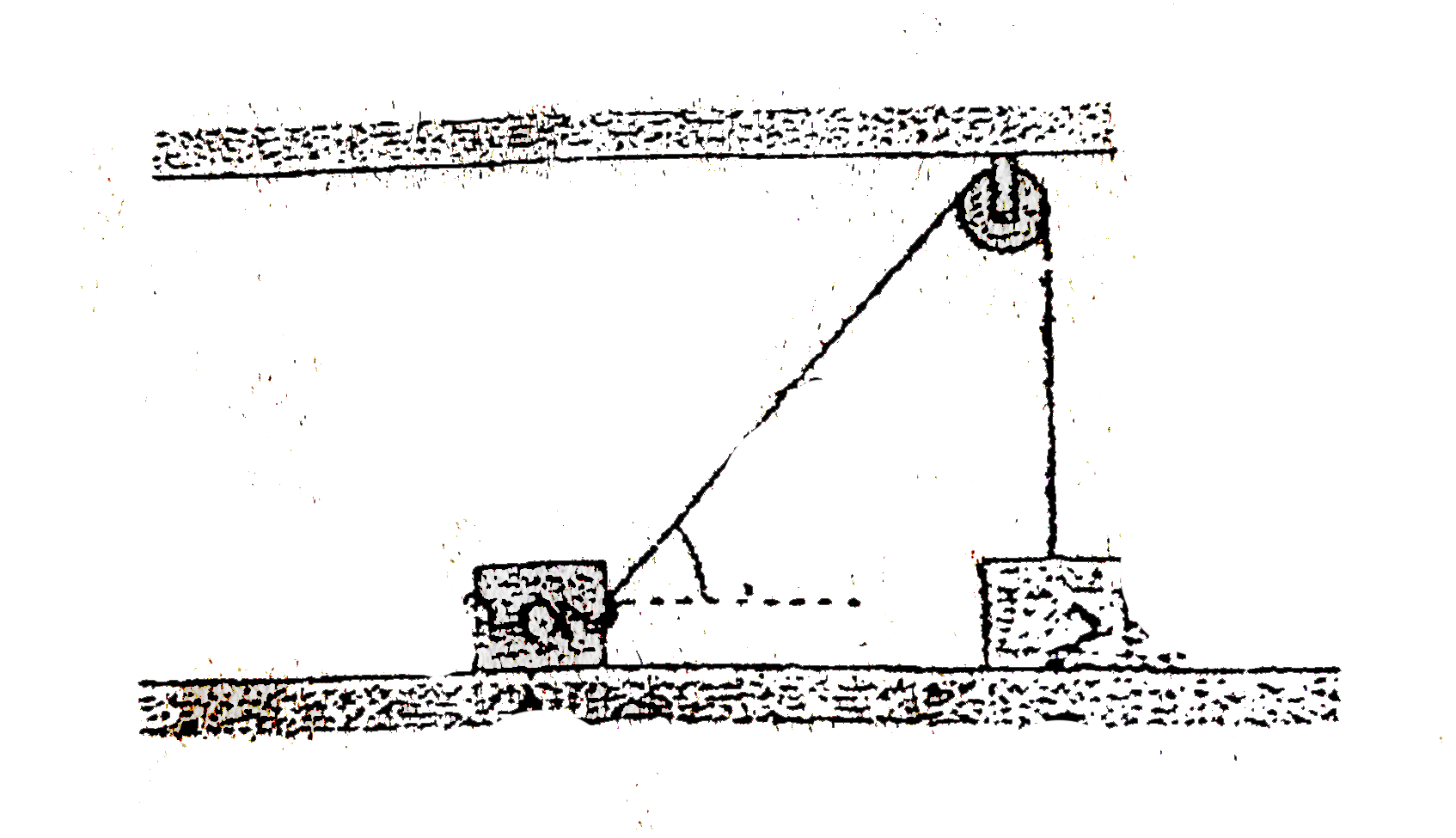 View Solution
View SolutionA block A of weight W slide down an inclined plane S of slope37∘at a contact velocity,while the plane B also of weight W rests on top of A The plank B is atteched by a cord to the top of plane .The coefficient of kinetic frictionμ is the same between the surface A and B and between S and A Determine the value of 1/μ
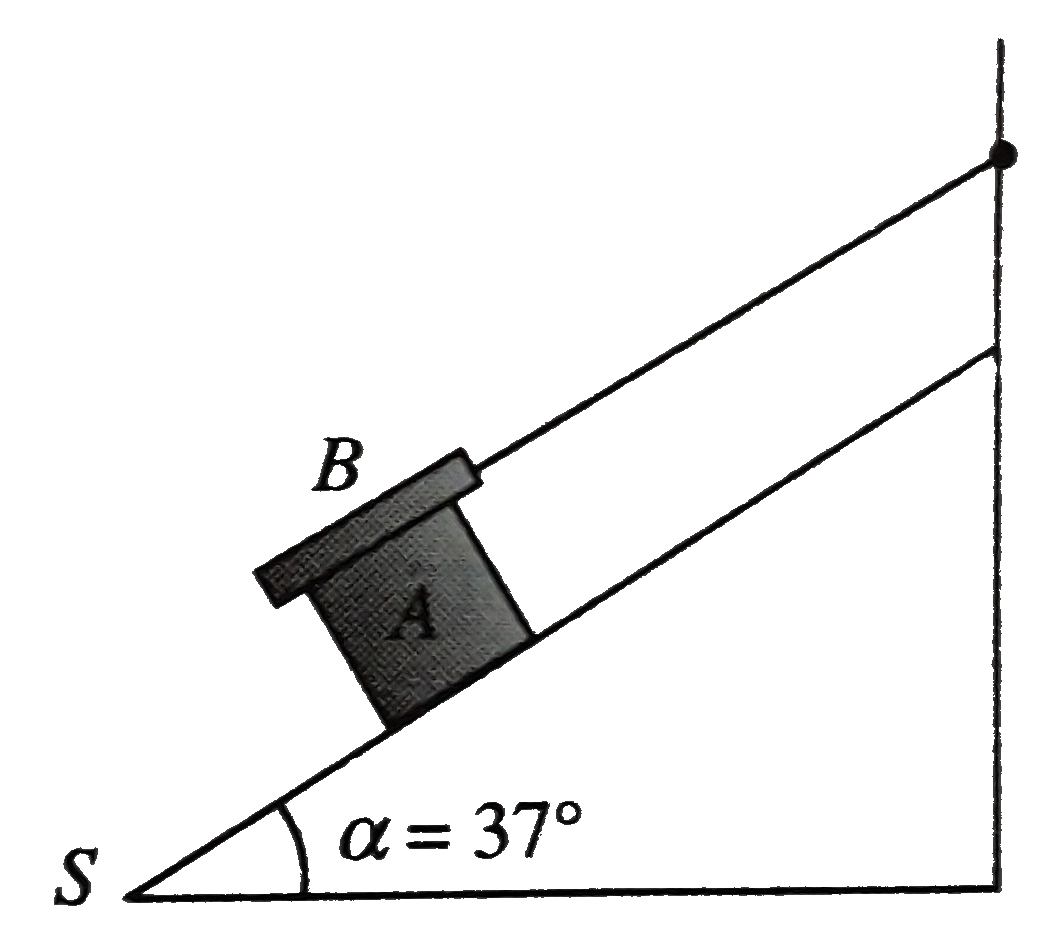 View Solution
View SolutionTwo blocks are connected by a cord passing over a small frictionless pulley and resting on frictionless planes as shown in the figure. The acceleration of the blocks is :
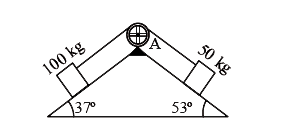 View Solution
View SolutionThe blocks are on frictionless inclined ramp and connected by a massless cord. The cord passes over an ideal pully. [g=10m/s2]
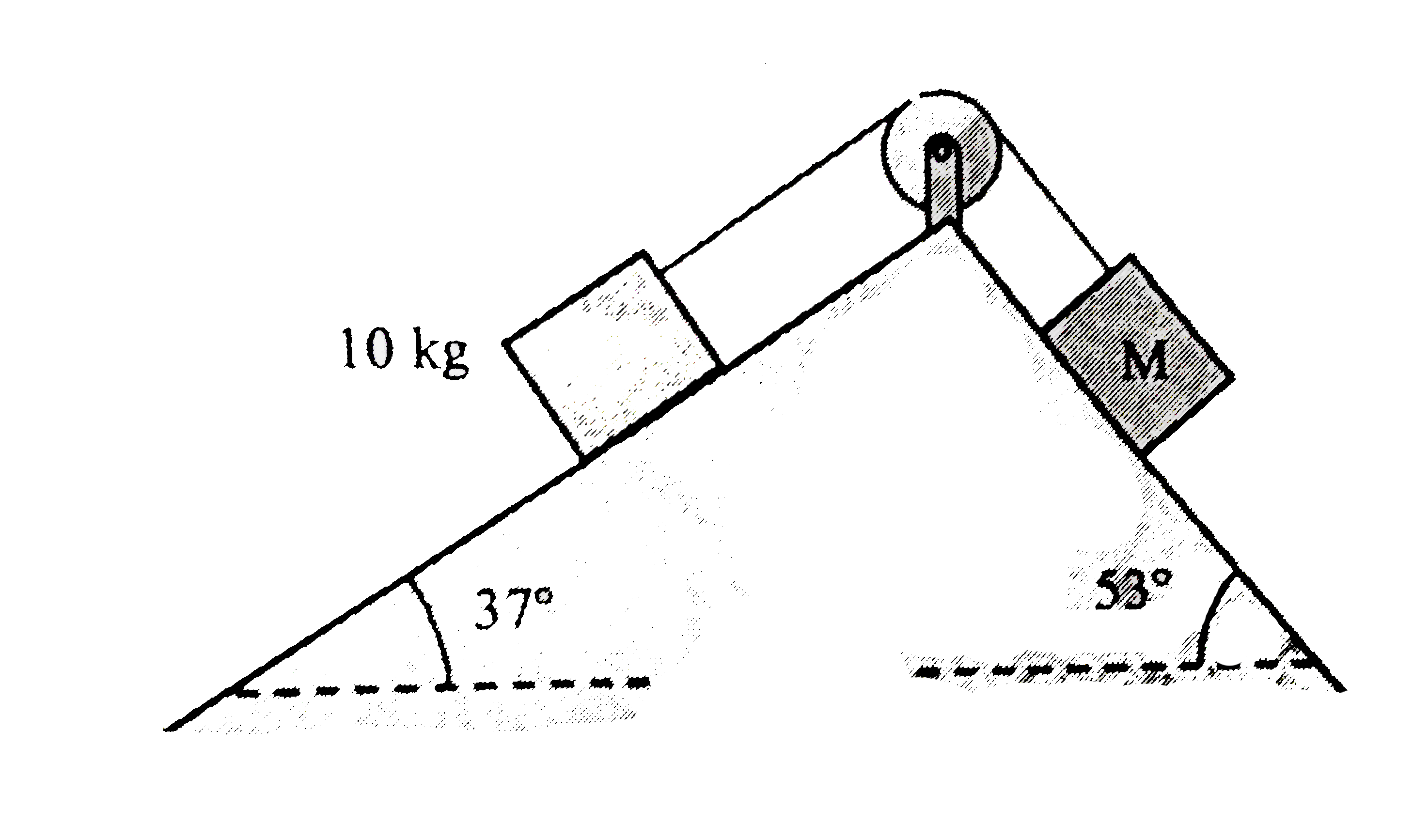
What value of M would keep the system rest.View SolutionA block of mass M1=3kg on a smooth fixed inclined plane of angle 30∘ is connected by a cord over a small frictionless pulley to a second block mass 2kg hanging vertically. The tension in the cord and the acceleration of each block are ………............. and ...................... respectively.
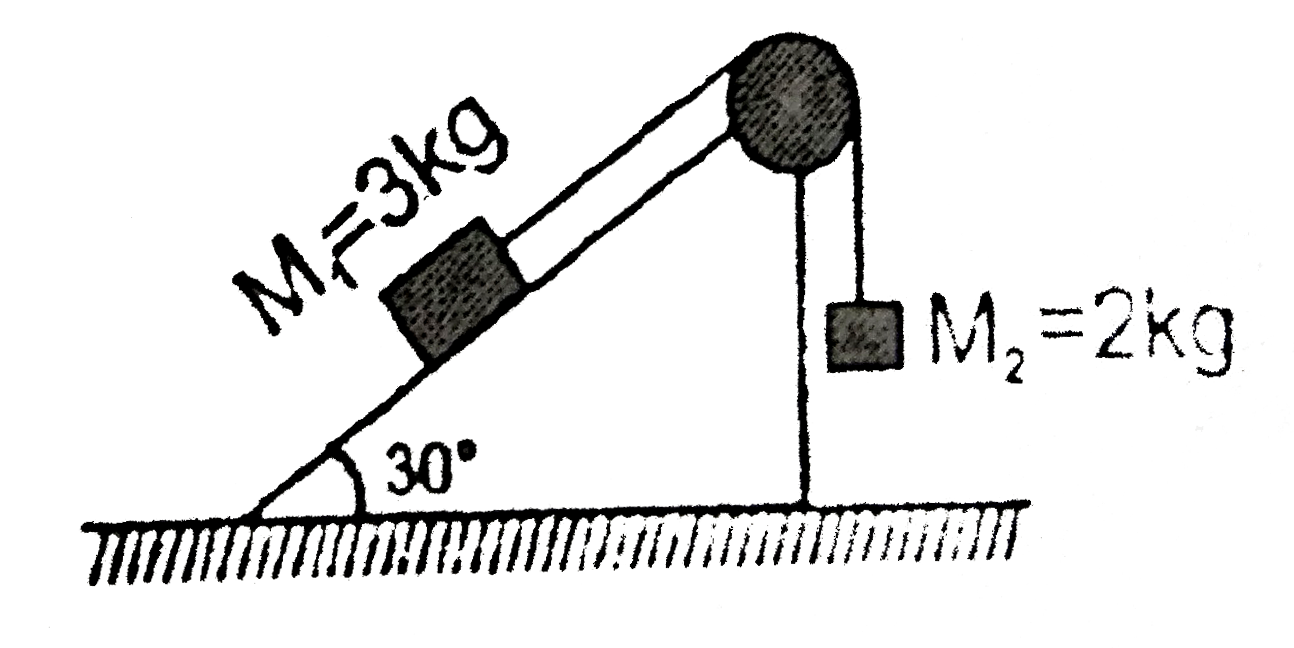 View Solution
View SolutionBlock B of mass mB=0.5kg rests on block A, with mass mA=1.5kg which in turn is on a horizontal tabletop (as shown in figure) .The coefficient of kinetic friction between block A and the tabletop is μk=0.4 and the coefficient of static friction between block A and blockB is μs=0.6 A light string attached block A passes over a frictionless, massless pulley and block C is suspeneded from the other end of the string. What is the largest mass mc (in kg) that block C can have so that block A and B still slide together when the system is relaced from rest?
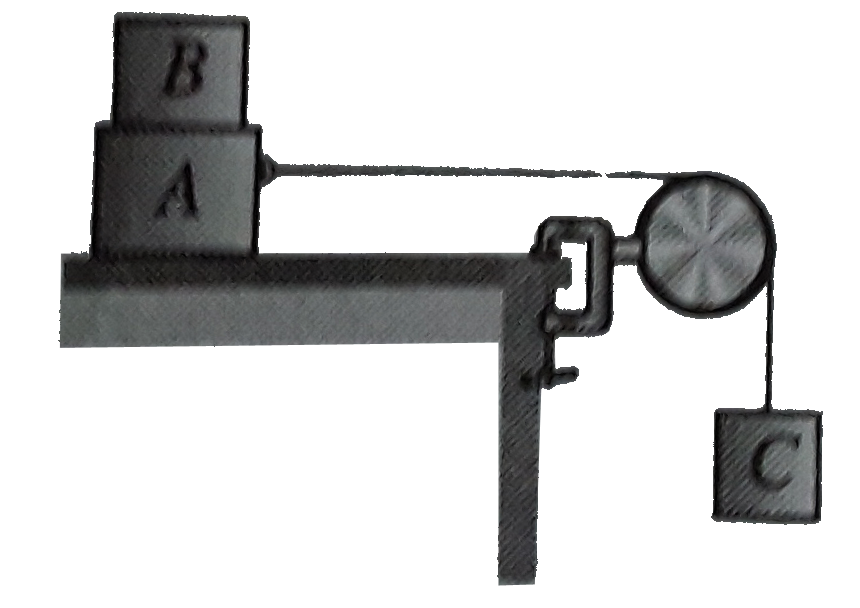 View Solution
View Solution

